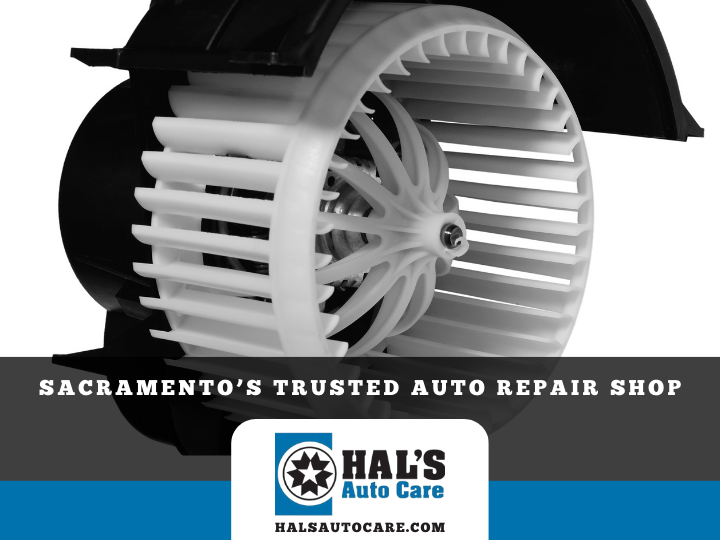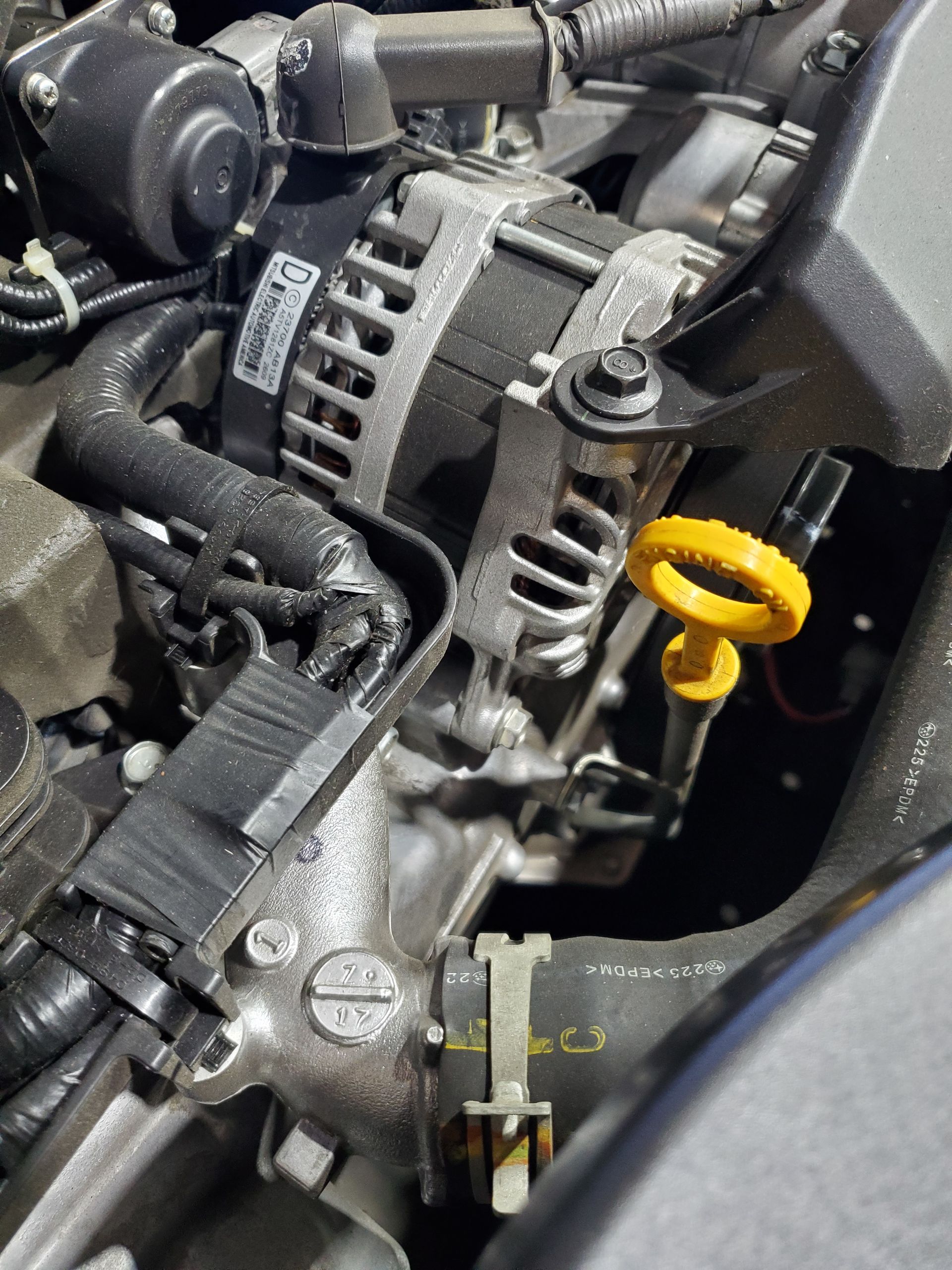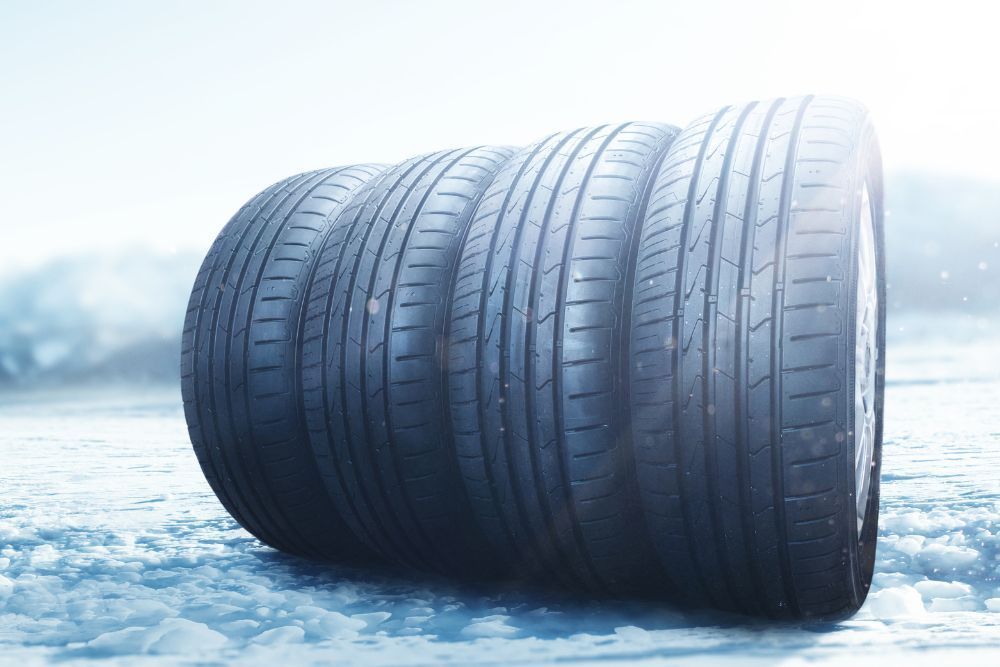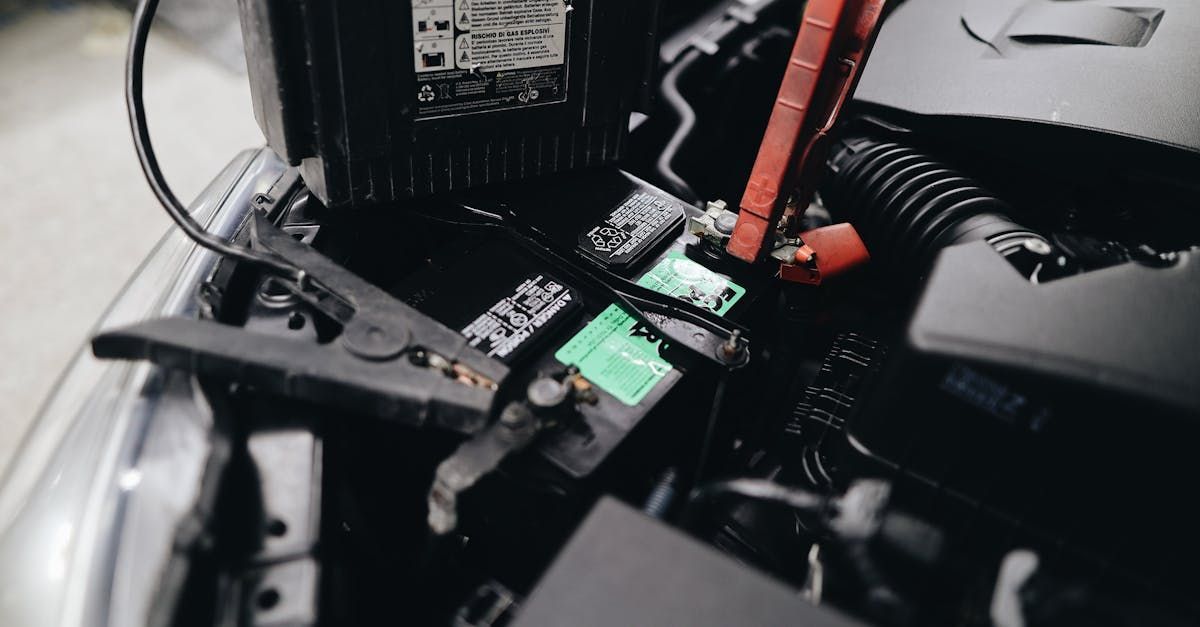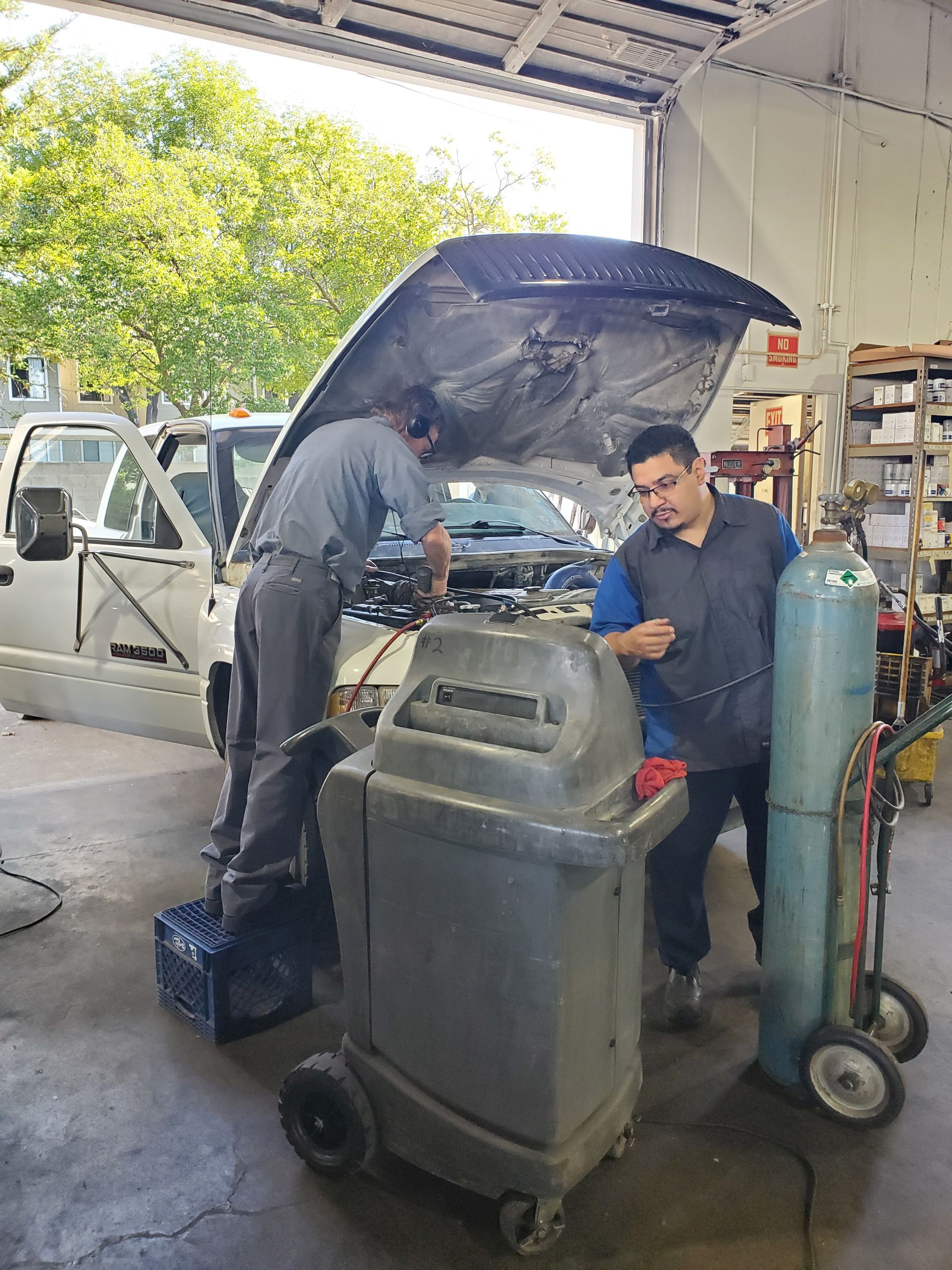Why Does My Car Sound Like a Lawn Mower When I Accelerate?
Why Does My Car Sound Like a Lawn Mower When I Accelerate?

Why Does My Car Sound Like a Lawn Mower When I Accelerate?
If your car starts sounding like a lawn mower every time you accelerate, it's a sign that
something isn’t quite right under the hood. While the noise might be easy to ignore at first, it’s
important to understand that this sound could indicate a more serious issue—specifically, a
problem with your car’s exhaust system. In this blog post, we'll delve into why your car might
sound like a lawn mower when accelerating, what it means for your vehicle, and what you
should do about it.
Understanding Your Exhaust System
The exhaust system is a crucial component of your vehicle, playing a vital role in the car's
overall performance and safety. Situated underneath your vehicle, the exhaust system is
designed to guide harmful gases produced by the engine away from the car and reduce the
noise created during the combustion process. The system also helps to control emissions,
making your vehicle more environmentally friendly.
The key components of the exhaust system include:
● Exhaust Manifold: This part collects exhaust gases from the engine’s cylinders and
directs them into the exhaust pipe.
● Front Pipe: Connects the exhaust manifold to the catalytic converter.
● Catalytic Converter: Converts harmful pollutants in the exhaust gases into less harmful
emissions before they leave the vehicle.
● Downpipe: Often connects the catalytic converter to the exhaust pipe in turbocharged
vehicles.
● Muffler: Reduces the noise of the exhaust gasses as they exit the vehicle.
● Tailpipe: The final part of the system, where the exhaust gasses exit into the
atmosphere.
Each of these components must work together seamlessly to ensure your car runs smoothly
and quietly. However, when one or more parts of the exhaust system are compromised, you’ll
start to notice problems, including unusual noises.
Common Causes of Exhaust System Issues
When your car starts sounding like a lawn mower, the most common cause is an exhaust
system leak. Here’s a closer look at what might be going wrong:
1. Exhaust Leaks: Over time, various components of the exhaust system can develop
leaks. These leaks often occur due to wear and tear, physical damage, or corrosion. An
exhaust leak means that the gasses produced by your engine are escaping through
holes or cracks before they reach the muffler, which typically quiets the noise. The result
is a much louder sound that can resemble a lawn mower, especially when you
accelerate.
2. Corrosion and Rust: The exhaust system is constantly exposed to elements like water,
salt, and debris from the road. Over time, these elements can lead to corrosion and rust,
particularly in regions where salt is used on roads during winter. Rust weakens the metal
components of the exhaust system, making them more susceptible to cracks and holes.
Once a hole forms in the exhaust pipe or muffler, it can lead to a loud, rumbling noise.
3. Damaged Muffler: The muffler is designed to reduce the noise created by the exhaust
gases as they exit the vehicle. If the muffler is damaged or rusted, it can no longer
perform its function effectively, resulting in a loud, unpleasant noise. A damaged muffler
can also increase backpressure in the exhaust system, potentially leading to further
engine problems.
4. Loose or Broken Exhaust Components: Sometimes, the exhaust system components,
such as brackets or hangers, can become loose or break. This can cause parts of the
exhaust system to move out of place, leading to leaks or contact with other components,
which can also result in a loud noise.
5. Faulty Catalytic Converter: While less common, a failing catalytic converter can also
contribute to unusual noises. If the catalytic converter becomes clogged or damaged, it
can cause a rattling noise, and if there are cracks in it, it can allow exhaust gases to
escape before they reach the muffler, leading to an increase in noise.
The Risks of Ignoring Exhaust System Problems
Ignoring a loud exhaust system is never a good idea. While it might seem like just a noisy
annoyance, it can lead to a host of other issues, including:
1. Health Risks: One of the most significant dangers of an exhaust system leak is the
potential for exhaust gasses, including carbon monoxide, to enter the cabin of your
vehicle. Carbon monoxide is a colorless, odorless gas that can be deadly in high
concentrations. Symptoms of carbon monoxide poisoning include headaches, dizziness,
nausea, and even loss of consciousness. If you notice a sharp odor or feel drowsy while
driving, it’s essential to pull over immediately and get fresh air. Driving with a suspected
exhaust leak is extremely dangerous and should be addressed right away.
2. Reduced Fuel Efficiency: A properly functioning exhaust system helps your engine run
efficiently. When there’s a leak or damage in the system, your engine has to work harder,
which can lead to decreased fuel efficiency. You might find yourself filling up your gas
tank more often than usual.
3. Decreased Engine Performance: An exhaust leak can also affect your engine’s
performance. The exhaust system plays a role in maintaining the right level of
backpressure in the engine, which is necessary for it to run smoothly. A leak can disrupt
this balance, leading to poor acceleration, rough idling, and other engine performance
issues.
4. Failed Emissions Test: If your car is due for an emissions test, an exhaust system leak
can cause it to fail. Exhaust leaks can lead to higher emissions of harmful pollutants,
which could mean costly repairs before your car can pass the test.
5. Costly Repairs: What might start as a small hole or crack in your exhaust system can
quickly escalate into a much bigger problem if left unaddressed. Rust and corrosion can
spread, leading to the need to replace large sections of the exhaust system or even the
entire system. Regular maintenance and prompt repairs can help you avoid these more
extensive and expensive fixes.
What to Do If Your Car Sounds Like a Lawn Mower
If your car is making a lawn mower-like noise when you accelerate, it’s important to have it
inspected by a professional mechanic as soon as possible. A trained technician can inspect the
exhaust system to locate any leaks, rust, or damage and recommend the appropriate repairs.
Here are the steps you should take:
1. Schedule an Inspection: Contact your trusted mechanic or auto repair shop to
schedule an inspection. Let them know about the noise you’re hearing and any other
symptoms you’ve noticed, such as unusual smells or changes in your car’s performance.
2. Diagnose the Problem: During the inspection, the mechanic will check the entire
exhaust system, including the exhaust manifold, catalytic converter, muffler, and tailpipe,
for signs of leaks, rust, and damage. They may also check the hangers and brackets that
hold the exhaust system in place to ensure they are secure.
3. Make Necessary Repairs: Depending on the extent of the damage, the mechanic might
recommend patching a small hole, replacing a section of the exhaust pipe, or even
replacing the muffler or catalytic converter. While some repairs can be relatively simple
and inexpensive, more severe damage might require more extensive work.
4. Consider Preventive Maintenance: To avoid future exhaust system problems, consider
having your exhaust system inspected regularly as part of your vehicle’s maintenance
routine. This can help catch issues before they become serious, saving you time and
money in the long run.
5. Stay Safe: If you suspect that exhaust gasses are entering your car’s cabin, stop driving
immediately and get fresh air. Do not drive the vehicle again until it has been inspected
and repaired. Your safety is the top priority.
Final Thoughts
A car that sounds like a lawn mower when you accelerate is not just an annoyance—it’s a
warning sign that your exhaust system may be compromised. Addressing exhaust system
issues promptly can help you avoid more serious problems down the road, such as decreased
engine performance, lower fuel efficiency, or even health risks from exposure to harmful exhaust
gasses.
Remember, regular maintenance is key to keeping your exhaust system and your entire vehicle
in good working order. By taking care of your car’s exhaust system, you’ll enjoy a quieter,
smoother ride and peace of mind knowing that you’re driving safely and efficiently.
https://youtu.be/0s-FDJvzX2U
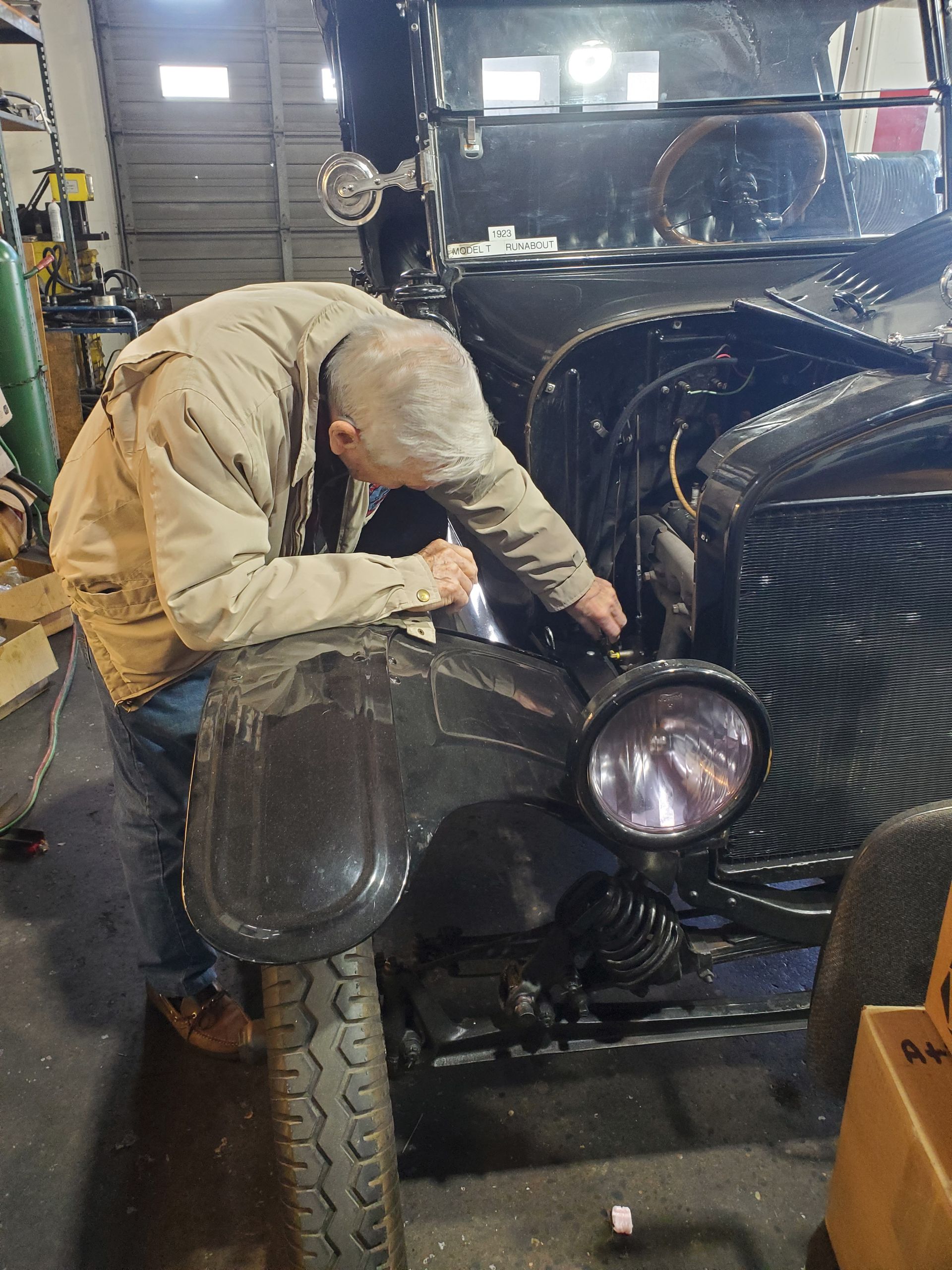
Follow us
Hal's Auto Care
Services
List of Services
-
Auto AC RepairAuto AC Repair
-
Brake Repair & ReplacementBrake Repair & Replacement
-
Vehicle DiagnosticsVehicle Diagnostics
-
Car Electrical RepairCar Electrical Repair
-
Transmission RepairTransmission Repair
-
EV & Hybrid RepairEV & Hybrid Repair
-
Oil Change, Filters and LubeOil Change, Filters and Lube
-
Suspension RepairSuspension Repair
© 2024 Hal's Auto Care. All Rights Reserved | Website managed by
Shopgenie
Follow us
Hal's Auto Care




© 2023 Hal's Auto Care. All Rights Reserved | Website managed by
Shopgenie




